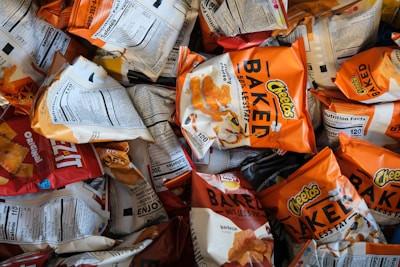Strategies for Giving Up Bad Habits
Curated from: psychologytoday.com
Ideas, facts & insights covering these topics:
4 ideas
·88.7K reads
549
5
Explore the World's Best Ideas
Join today and uncover 100+ curated journeys from 50+ topics. Unlock access to our mobile app with extensive features.
Develop a Mantra to use when temptations appear
When temptation or self-doubt arises, you can repeat a mantra you have created, to recall yourself back in your self-disciplined state of mind.
Think of a quick word or phrase that you can repeat to yourself when you're tempted to indulge. You'll likely find it boosts your self-discipline fast.
3.6K
30.1K reads
Know your reasons for breaking bad habits
We give in to temptations due to our emotions winning over logic, as indulgence offers us temporary relief.
Create a list, with clear reasons for staying under control and all the ways you will be better if you don't give in to temptation. Keep the list at hand and read it out whenever you feel like indulging, until the craving passes.
2.85K
20.4K reads
Keep bad habits out of reach
Sometimes, bad habits are just too convenient and we're used to them, so creating obstacles that make the bad habit a challenge to perform will take care of impulsive actions and indulgences.
If one wants to quit smoking, it does help if there are no cigarettes around, for example.
2.29K
17K reads
Grow stronger mentally by defeating temptations
Giving up bad habits and defeating temptations makes us mentally stronger and more reliable.
Overcoming mistakes and slip-ups also helps build our mental muscle.
2.28K
21.1K reads
IDEAS CURATED BY
CURATOR'S NOTE
Getting rid of bad habits can be tough. Here are a few tricks that work.
“
Bobby Boy's ideas are part of this journey:
Learn more about personaldevelopment with this collection
Understanding the psychological rewards of bad habits
Creating new habits to replace old ones
Developing self-discipline
Related collections
Similar ideas
12 ideas
7 ideas
A Beginner's Guide on How to Eat Healthy and Stick to It
jamesclear.com
8 ideas
The Guide to Habits
markmanson.net
Read & Learn
20x Faster
without
deepstash
with
deepstash
with
deepstash
Personalized microlearning
—
100+ Learning Journeys
—
Access to 200,000+ ideas
—
Access to the mobile app
—
Unlimited idea saving
—
—
Unlimited history
—
—
Unlimited listening to ideas
—
—
Downloading & offline access
—
—
Supercharge your mind with one idea per day
Enter your email and spend 1 minute every day to learn something new.
I agree to receive email updates

